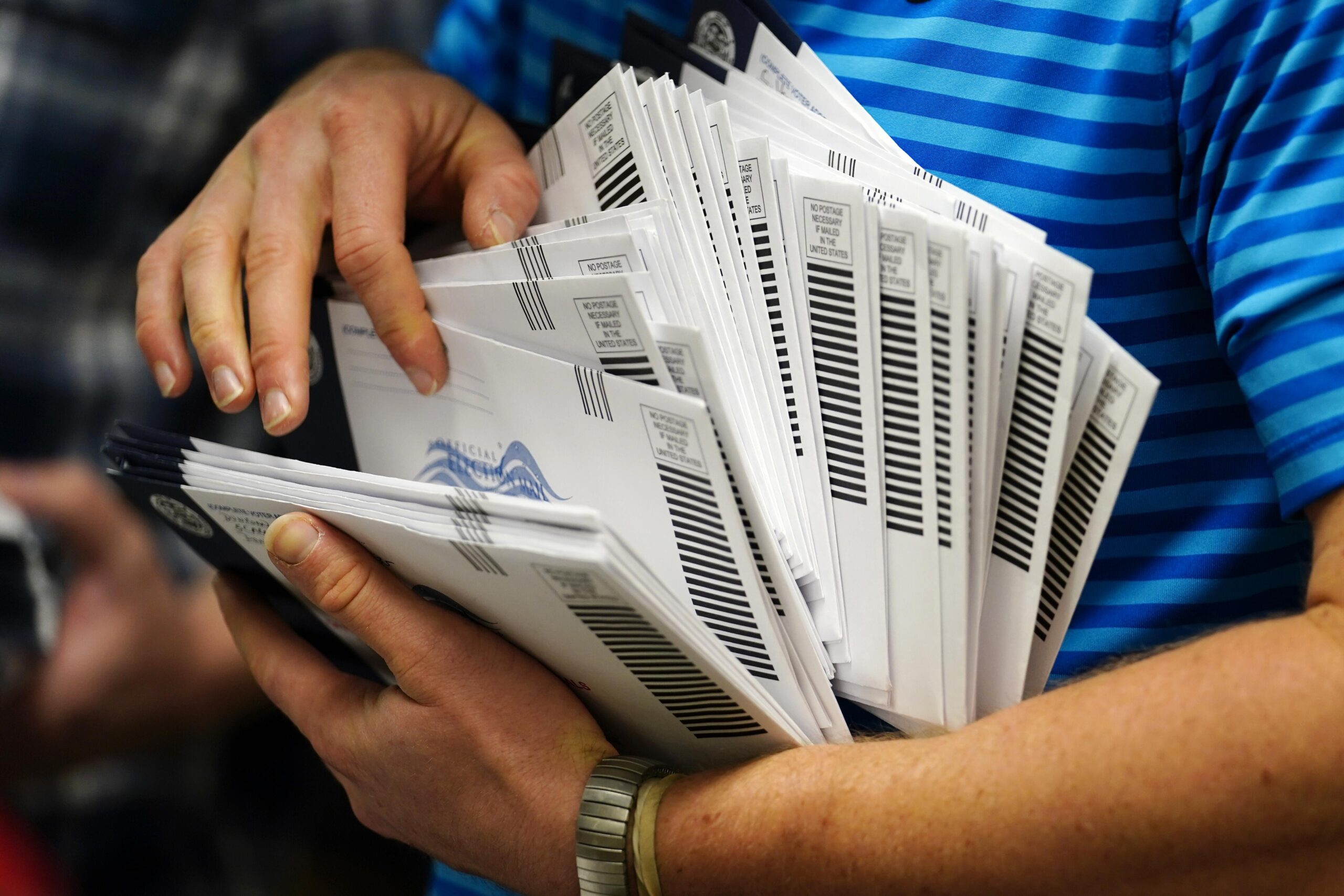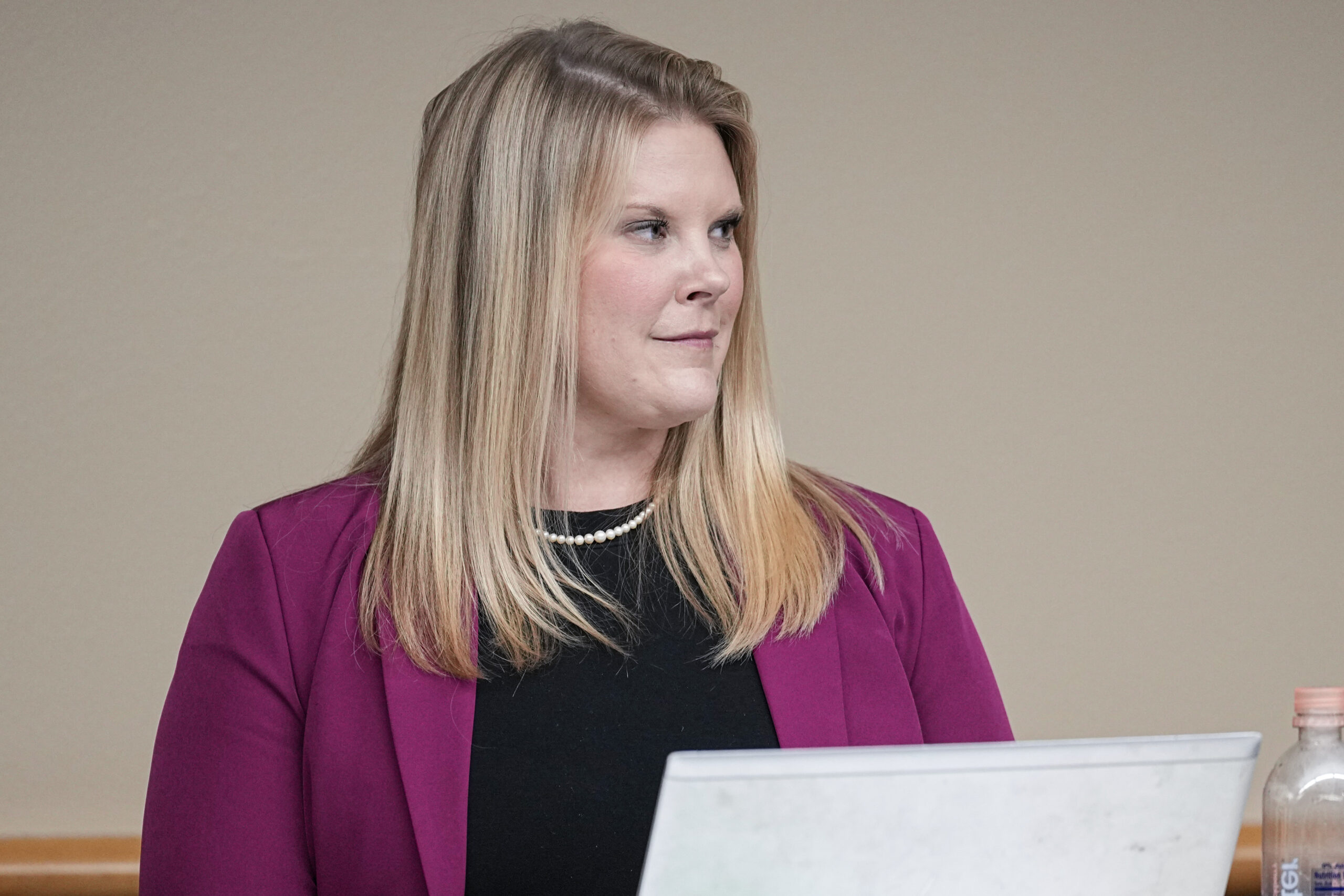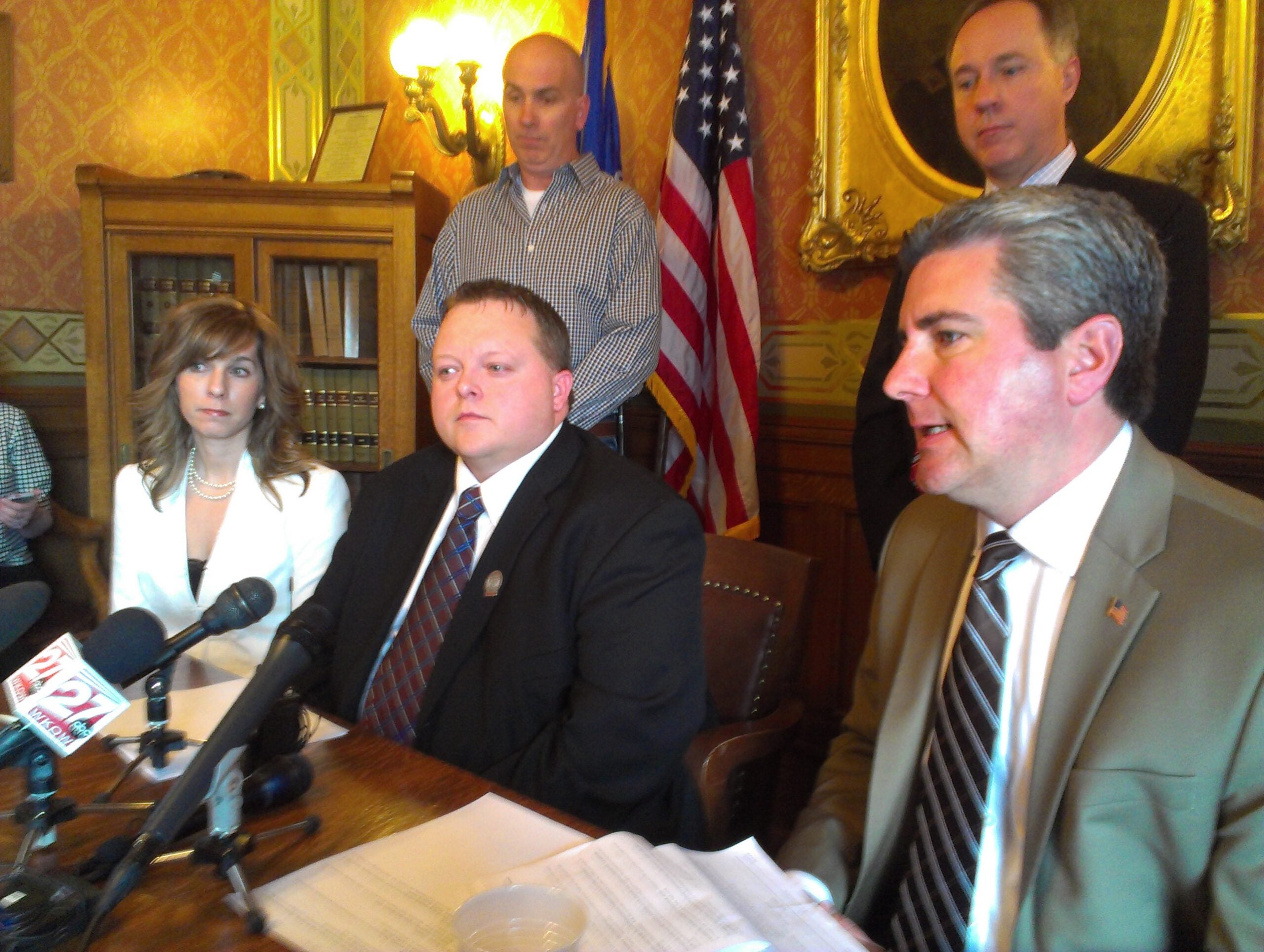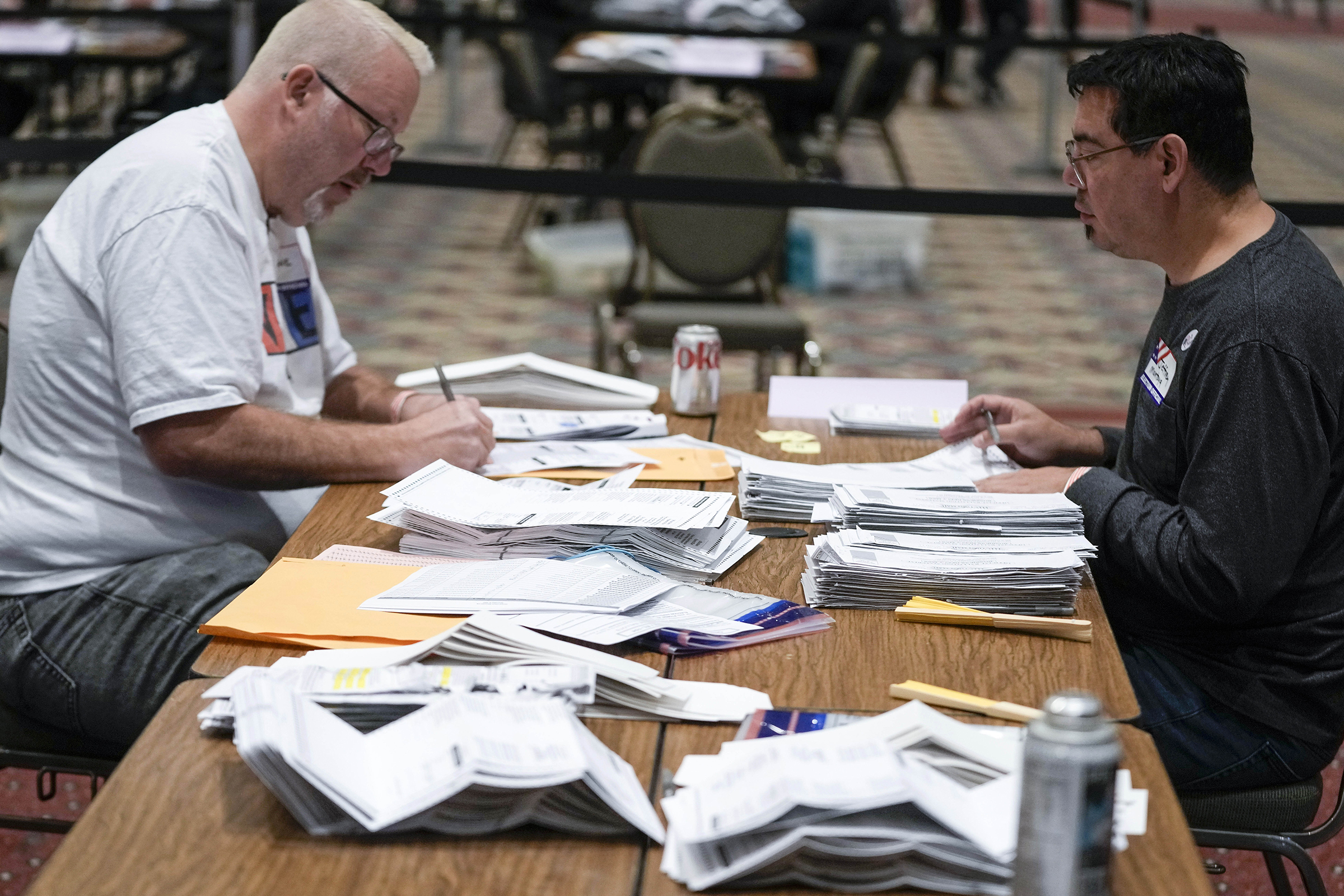The chair of the state Assembly’s elections committee is urging people to “dial back the rhetoric” after Madison’s city clerk accidentally sent out duplicate absentee ballots. Republican state Rep. Scott Krug made the statement after Republican U.S. Rep. Tom Tiffany called for an investigation and questioned whether the clerk’s office can be trusted.
On Monday, the Madison City Clerk’s office issued a statement saying a “data processing error” led to duplicate absentee ballots being sent to around 2,000 voters in the city. It said affected voters were being contacted and told to destroy their duplicate ballots. The city’s statement also said “because the duplicate ballots have identical barcodes, in the unlikely event that a voter submits two absentee ballots, only one can be counted.”
In consecutive posts this week to the social media site X, Tiffany, R-Minocqua, accused the city clerk’s office of changing its story regarding the duplicate ballots. Specifically, Tiffany took issue with the original statement about barcodes being on the ballots and posted an image Wednesday of ballots without barcodes. As of Friday morning, the post had been viewed 2.4 million times.
The clerk’s office revised the statement clarifying that barcodes are on the absentee ballot envelope, not the ballots themselves.
Tiffany responded with a post questioning, “Why do they keep editing their statements and press releases?” Tiffany is calling for a third-party investigation.
City of Madison spokesperson Dylan Brogan told WPR the office’s statement was revised to make the issue “crystal clear” in light of Tiffany’s post.
“And I don’t think that’s changing our story,” Brogan said. “The congressman has said that he knew that absentee ballots, that the barcodes are located on envelopes. So I’m just not sure what exactly the problem is here.”
Tiffany’s Wednesday post garnered strong pushback from some Wisconsin Democrats. A post from Wisconsin Elections Commission Chair Ann Jacobs said she “can’t tell if this is just profound lack of knowledge or the intentional farming of outrage.”
“Both, by the way, are bad,” Jacobs wrote.
News with a little more humanity
WPR’s “Wisconsin Today” newsletter keeps you connected to the state you love without feeling overwhelmed. No paywall. No agenda. No corporate filter.
Democratic U.S. Rep. Gwen Moore of Milwaukee told Tiffany to “knock it off” in a Thursday post. She said she and Tiffany have voted absentee and understand the process.
“We owe it to the people of Wisconsin to not spread falsehoods about election security,” Moore wrote.
Krug, R-Nekoosa, who chairs the Wisconsin Assembly Committee on Campaigns and Elections, posted that Tiffany’s post “caught my eye too.” While noting the clerk’s original statement said the barcode was on the ballot, he talked to clerks in multiple municipalities about the reasons for the barcodes.
“Everyone can dial back the rhetoric a bit,” Krug said.
In an interview with WPR, Krug called the mistake in Madison “a human error.”
“I think the challenging part of it is that it came from Madison, you know,” Krug said. “If it came from Sheboygan, I don’t know if it’d be as exciting to some people.”
Krug lauded the clerk’s office for immediately owning up to the mistake. He said the same thing happened in Douglas County in August, when Douglas County Clerk Kaci Jo Lundgren announced a ballot misprint led to the wrong Assembly race appearing on ballots in the Town of Summit.
“So I give all my clerks the credit that when they’re finding an issue because of human error, they’re putting it out there right away for everybody to be aware of, 100 percent full daylight on every issue,” Krug said.

RNC alleges 1K absentee ballots sent to ‘inactive’ voters, WEC says that’s misleading
Krug said he’s fielded dozens of calls since Thursday about a social media post from the Republican National Committee claiming more than 1,000 absentee ballots have been sent to inactive voters, including 456 who are deceased.
“The @GOP is demanding answers!” said the post. WEC (Wisconsin Elections Commission) must immediately explain why their data files seem to show ineligible voters receiving mail ballots.”
WPR obtained a copy of the RNC letter and the response from Wisconsin Elections Commission Administrator Meagan Wolfe, which was sent Friday.
Wolfe said only active, registered voters can request an absentee ballot and have their vote counted. She said the data request from the RNC sought “records of all absentee ballots mailed to voters, regardless of whether the ballot was subsequently rendered void.”
Wolfe’s letter provided an example of a specific voter, identified by number, who requested an absentee ballot Sept. 10. Eight days later, she said, the municipality learned the voter had died.
Wolfe said in other cases, voters have moved since requesting ballots and their old ballots are voided.
“That is why your report contains inactive voters,” she said.
Wolfe added if the RNC wants to only receive active ballots in future data requests, “you may so specify when requesting the data.”
“We offer that, in the future, we would appreciate if you would call us before publishing a letter which inaccurately portrays the data you received from our office,” said Wolfe.
Krug told WPR it would be helpful if people and organizations didn’t “argue by press release.”
“Let’s build some relationships and actually talk to individuals before we start going to press releases and Twitter posts,” Krug said. “Let’s just remember what it’s like to be human beings, to talk to each other.”

Partisan gap regarding faith in elections widens
On Wednesday, survey results released by Gallup showed that partisan splits regarding confidence in U.S. elections have deepened. The most recent results show 84 percent of Democrats reported feeling somewhat or very confident in election results. Only 28 percent of Republican respondents felt the same way.
University of Wisconsin-Madison political science professor Barry Burden said running elections is a complex business and mistakes often happen.
“The trouble is that the public doesn’t always understand those complications and the safeguards and politicians and other advocates sometimes have an interest in spreading misinformation or taking advantage of those mistakes or political purposes,” Burden said.
The trouble, he said, is social media posts sowing doubt about elections “often go further on the internet than the reality.”
“So, Tiffany’s comments about the ballots in Madison have been spread on social media pretty widely, and probably have reached more people than the corrective press release or the information that the city clerk issued,” Burden said.
Wisconsin Public Radio, © Copyright 2025, Board of Regents of the University of Wisconsin System and Wisconsin Educational Communications Board.






